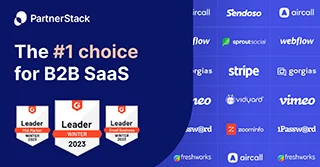Marketing
3 Ways to Market Your Skills Online

As a freelancer trying to move your way up in the industry, you probably already know that competition is fierce. As of 2014, there were over 53 million freelancers working in the United States.
That’s right—you are one of 53 million people looking for the next big project to work on with that up-and-coming startup.
Being that you’re in competition with literally tens of millions of professionals looking at the same job boards and applying for the same freelance positions, you’ll need to learn how to market yourself so that it’s your resume recruiters pull and share with management.
Here are five ways to market your skills online and get the call you’re longing for:
Focus on your image
We’ve all heard this before: “A picture is worth a thousand words.” Though it’s a fairly old and even contrite expression, it’s nevertheless true. According to a survey conducted by Career Builder, “51 percent of employers who research job candidates on social media said they’ve found content that caused them not to hire the candidate.”
Take a look through your social media profiles and tagged pictures. What type of content is being posted? Are you making presentations at job fairs and sharing your latest projects and work process? Or, is the content online showing you slumped in a corner with a drink in your hand at your friend’s bachelor/ette party? If there are images of you online in any sort of precarious situation or position, you can say goodbye to the project opportunities you have applied for.
To present yourself as a hard-working professional online, share images in which you are doing something positive, such as traveling in a foreign country (museum pictures are nice!) or working on your latest creation.
When it comes to your professional profile on LinkedIn, the BBC reports that “the most effective picture is a full headshot where you [are] smiling and looking friendly.”
Customize your portfolio
A clean and up-to-date digital portfolio documenting your previous and in-progress projects will help companies get a better idea of your skills and creative process. Like your resume and even your social media imaging, your portfolio will make a lasting first impression. If the portfolio is unorganized, outdated or aesthetically (dis)pleasing, a potential client will bypass it for the next candidate.
Themezilla writes that there are five reasons why your portfolio needs to incorporate your original, inventive and creative content projects:
- It demonstrates your skill level
- It demonstrates your experience
- It demonstrates your creative development
- It showcases the varied types of projects you have overseen
- It keeps everything in one easy and accessible place to share
A digital portfolio can be the make or break in the hiring process. Levo points out that “56 percent of all hiring managers are more impressed by a candidate’s online portfolio than any other personal branding tool, [but] only 7 percent of job seeks have created an online portfolio.” Set yourself apart from the competition: build yourself a portfolio!
Make yourself available
A freelancer who is tough to get ahold of and doesn’t use online business tools to communicate with the client will quickly be cut loose and replaced by a freelancer who does. Even if you’re working diligently on a project and giving a top-notch performance, not staying in constant contact with the client can make them feel like you’re not delivering on your promises.
By promoting yourself online using the tips above, you’ll land that next big client.









